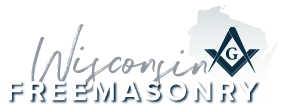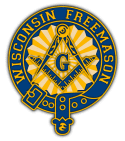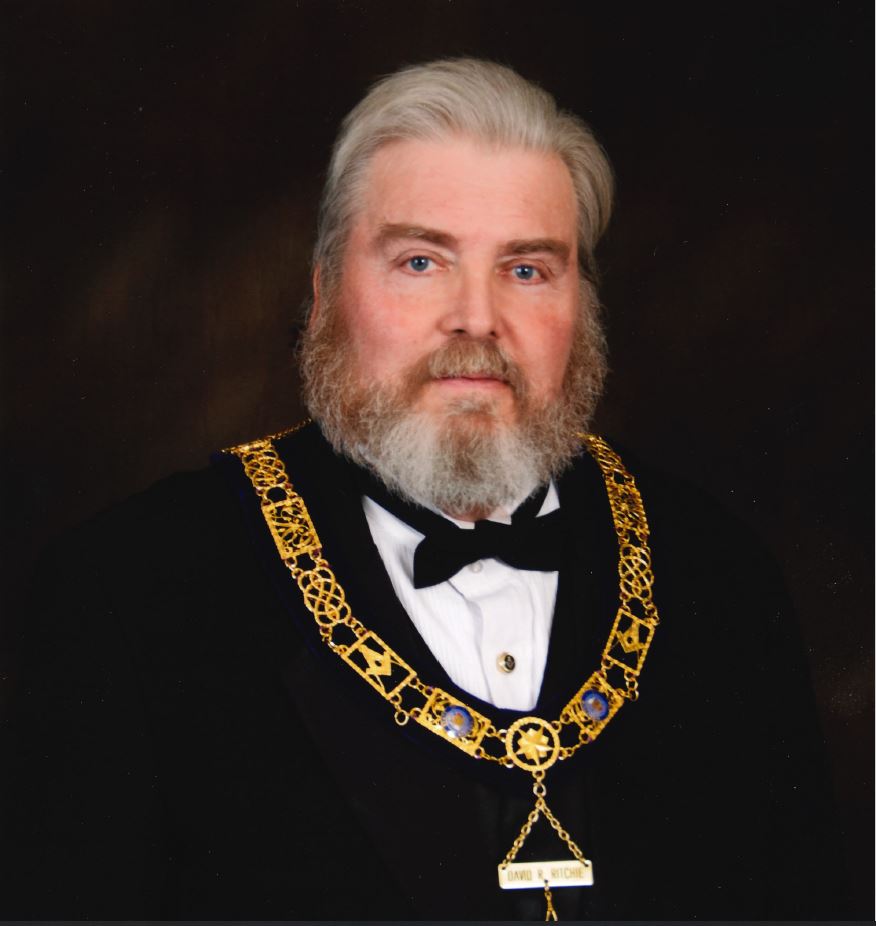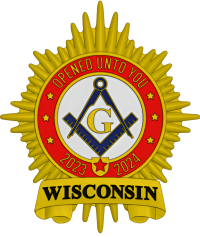The 4 “P’s”
People, Planning, Programming and Proficiency
The Cornerstones of Successful Lodges
Are you a member or officer of stumbling, bumbling old Rough Ashlar Lodge? The lodge continues to struggle with a lack of activity, programs fall flat, degree work is lacking. Membership and attendance are dwindling. We love our old lodge but it can be frustrating and depressing at times when things just don’t seem to ever improve.
Maybe you are envious of Perfect Ashlar Lodge. You know the one – lots of sideliners, petitions and degree work non-stop. They have great programs on a regular basis and even their officers are better looking.
What can we do to help old Rough Ashlar become successful again?
There are no magic elixirs, but a simple strategic plan centering on the 4 “P’s” will help to focus the lodge and its officers, and is guaranteed to make a positive difference! Just as a table or chair stands most solidly on four legs, our lodge will stand solid if we pay equal attention to these four cornerstones.
People
Contacts, Caring
A Lodge is first and foremost about people! There are various groups that we should be concerned with in our lodge activities. Actively consider how programs and activities affect each group and do your best to consider them all.
Some of the groups of People that we should be concerned with include:
- Officers – training, communication, expectations, decorum, dress codes, assignments,
- Ladies – Respect and consideration, included in our plans, activities and communications
- Sideliners – That wonderful group of supporters and loyal attenders that we all strive It isn’t just about numbers! Greet them all by name and include them in conversations and activities. Encourage them to be involved!
- Committees – A great tool for lodge governance and a great tool to involve Committees need specific assignments, timetables and support!
- Past Masters – Generally a great source of support and On occasion they may be critics or obstructing. Consider involving PM’s in positive manners whenever possible. Recognize them often and express the lodge’s appreciation.
- Trustees – A critical and important facet of all Be sure that the Trustees and officers all understand the parameters of the Trustees’ duties and the proper relationship between the lodge and its Trustees.
- Candidates – The utmost courtesy and consideration should be shown to candidates! Be sure that communications are timely and Welcome candidates and their families at events or meetings. Assign mentors, rely on top-line signers. Never take candidates for granted!
- Members – Seems obvious but do not neglect any of your members! Assign a strong Membership Committee and regularly review the lodge Pay attention to out of towners, elderly members and monitor who attends and who doesn’t. Endeavor to contact all members personally on a regular basis!
- New Members – Pay special attention to new members! Are your new MM’s attending lodge? Where are the MM’s that you have raised over the last 5 years? Are they a viable part of your lodge? If not, reach out to them!
- Phone/email chains – Be sure to establish regular ways to contact your members for important functions, Masonic Memorials In this day of email communication do not neglect members that don’t regularly use email– call them!
- Appendant Bodies – Be respectful and inclusive of appendant bodies! Appreciate the fact that members or ladies that are active in appendant bodies are an essential part of the body of Naturally we would love members to be active in blue lodge but don’t neglect the importance of other organizations. Support them, invite them and include them in the lodge whenever possible!
- Youth – It goes without saying that viable youth groups are a vital part of lodges that enjoy a chapter, bethel or If possible help to organize a group in your area. In addition to Masonic Youth be sure to support local youth activities and consider scholarships. Make sure to consider younger children of your members. Does you lodge own a high chair…?
People Continued
A review of some of the ideas or strategies that affect “People” –
- Sick and Distressed – Don’t rely just on the Senior Warden, assign a committee to visit and track sickness or distress within the Be sure to use common sense and respect privacy.
- Hospitaler – Consider adding a Usually lodges have one or two members that excel in visiting and helping members that are ill or hospitalized. Appoint those members as hospitalers to assist the Senior Warden.
- Children – Consider special events for children! Santa Breakfast, Easter Egg hunt, special kids meals, birthday cards, picnics with games and
- Birthdays – Begin a program to recognize birthdays or Masonic Send out cards, make a phone call or invite the member to be recognized at stated meetings.
- Visitations – Actively plan a visitation schedule! Start with your oldest Every lodge should be able to at least visit members that are ninety years old or more. Start with the oldest and work your way down!
- Age and Distance – As mentioned under visitations, be sure to pay special attention to your oldest In addition, do not neglect those that live far away from lodge. Consider how wonderful it is that members continue to support your lodge by paying dues even though they may have moved away. Don’t take them for granted!
Planning
What, who, when, how and promotion
When planning your program or event, always start with a simple Event Planning Worksheet. It is essential that everyone involved understands what needs to be done, who will do it – when and how! Completing a simple worksheet will allow you to track all aspects of your planning and to “close the loop” and be sure that all tasks are complete.
The Event Planning Worksheet helps to make sure that the “what, who and when” of event planning are accounted for. Each committee man and key man is charged with helping to carryout the “how”.
“How” to promote your events is always a key consideration! Do you use flyers? Emails? Social media? Announcements in lodge? A special letter or mailing? The Masonic Journal?
One simple rule of promoting lodge events is the Rule of “3” – When communicating special events or important notifications understand that folks generally need to “get the word” at least three times – two of which must be in writing! Experience shows that the Rule of “3” is just a fact of life!
The simple axiom “Plan your work and work your plan” applies to lodge programs and events. Begin using an organized event planning procedure and you will be more successful with each event you plan. As you learn to plan – plan to learn! Be sure to spend plenty of time brainstorming ahead of time to build a complete task list. Share the duties and get folks involved!
The most crucial aspect of planning any event is to “Close the loop”. The event chairman, and the Worshipful Master must VERIFY that each task has been completed satisfactorily and on time.
Programming
Ideas!
There are a myriad of programs the lodges can take advantage of. There is no “silver bullet” or special program or calendar that will appeal to every member or group. It is important to maintain a well-balanced calendar of events. The Lodge Excellence Award is an excellent tool for designing a well- balanced lodge calendar.
The best lodge programs will fail if not well planned (Planning) or executed (Proficiency). Even simple ideas or programs will succeed if well planned and executed. Enthusiasm and energy will help to carry even the most basic events!
Some ideas and/or considerations for Programming –
- Tailor programs to special interests in your lodge such as golf, baseball games, trap shooting or outdoor activities
- Consider programs that add “value” to life – Masonic Education, investing and wealth management, charitable presentations
- Regular activities after the meeting – card playing, special interest speakers, snacks
- Ladies Nights – hold special events for the ladies, “Ladies at the Table” or speakers specifically for the ladies on Dinners or dining out with the ladies, such as a Sweetheart Night.
- Resources – When considering programming be sure to consult the Masonic Handbook (Green Book), the Book of Ceremonies, and contact Grand Lodge Officers who typically have programs ready to go for most
- Public Interest – Schedule an event that will interest the general community – invite them! Consider Community Events such as open houses, breakfasts, Fish Fries
- Birthday Nights – Schedule regular nights to recognize birthdays or Masonic Birthdays
- Schools – Contact schools to supply musical groups, concerts or presentations
- Scholarships – Plan a special dinner and program to award scholarships
- Meals – Don’t underestimate the value of food at lodge events! Decide whether meals will be offered before lodge or Involve members in preparing and planning.
- Card playing nights, Bingo nights, Movie nights all can be fun and a break from the regular
- Table Lodges – Try to identify a “signature” Table Does your lodge have a special meal (fish, ethnic) or special theme that will interest visiting brothers?
- Festive Board – In days of old lodges held educational or business meetings and followed them up with a Feast prepared by the Consider an “exciting” Masonic speaker in a tiled lodge meeti ng and follow it up with a high end “pot luck” dinner special meal, or catered dinner. Include a dispensation to serve some quality craft beers and you’ll have a great evening. It is important that the lodge meeting be opened and closed in due form (could be in EA or MM). The keys to the evening are meeting on the level and Masonic Education followed up with good fellowship. The Festive Board evening can be a success with or without a dispensation for alcohol, as the lodge chooses.
Proficiency
Study and practice, includes writing and speaking
Proficiency applies to many aspects of running a successful lodge. While it obviously applies to the ritual, there are many other areas where officers should strive to be proficient.
Some of the important aspects to proficiency include:
- Deliver ritual with “heart”, strive to understand the meaning not just to memorize words
- Proficient degree work requires Practice individually and learn the work at home. Rehearse the work as a team at lodge. Exemplify degree work on a practice candidate. Hold a degree team meeting afterward to review any work that needs to improve and to verify assignments.
- Be heard! Whether running a meeting, program or during ritual it is essential to be Help each other out and be sure to adjust microphones or to speak loud enough and clearly. Remember that we often have older brothers or guests that don’t hear well. Always use a microphone for special events and programs if possible.
- Prepare! A huge part of being proficient is to be Naturally this applies to well practiced ritual, but also to running meetings and programs efficiently. Always be sure to review your agenda in advance. Be sure that all necessary materials are on hand. Practice in advance with projectors, microphones or any other technology. Communicate with your secretary and officers in advance so there are no surprises.
- Trestleboards, websites, flyers and any written materials need to be Be sure that you use a spell checker and a proof reader. Do not send out written materials, letters or flyers until you have carefully reviewed them for accuracy. Strive to keep written materials upbeat!
- Practice READING! Any materials that will be read out loud should be practiced in advance – out loud! Proficiency includes not stumbling over written materials.



